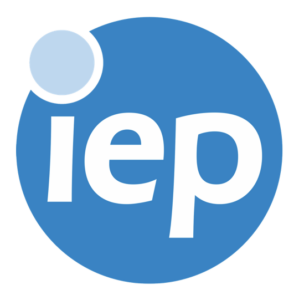
By Rick Kane FIEP, Strategic Advisor at APM
There but for the grace of God (or insert your belief system here) is a saying I always thought was a bit naff. That was, until I started working in the disability employment sector in 1996. My career until that point was a bit messy. I had worked as a media/drama teacher, actor and in stand-up comedy. There were periods of unemployment. I learned plenty through the different sectors I worked in and even more while unemployed.
My first role in disability employment was as an Employment Consultant, working for a homelessness agency with young people with acute mental health illness. I worked with a range of young people with schizophrenia, bi-polar and psychosis, supporting them on their journey to sustainable employment. I also began a lifetime journey, learning and improving on what had come before, about employment opportunities for people with disability and mental illness, that continues today.
I am, 28 years later, one of the old guard in disability employment in Australia. I have worked at big charities and large for profits, I have run a small community mental health specialist employment service, and I have honed my policy consulting skills working for a terrific not-for-profit that engaged innovation as a core practice.
Deep engagement
For 15 years, I was deeply involved in Australia’s main DES peak body, Disability Employment Australia (DEA), first as a Board member and then as CEO. For several years I was the Chair. While working at DEA, especially as CEO, I was engaged with the deep and persistent issues and matters that hinder best practice disability employment. These are matters that exercise government, disability advocates/representatives, academics, employer groups and the disability employment sector.
While there are multiple complex issues to deal with, the core objective is to build a space/system where people with disability seeking to join the labour market, establish their credentials, build careers, become managers and join boards can do so as an ordinary journey. The workforce participation gap between people without and people with disability in Australia, as of 2022 is around 24 percentile points. That is not fair for hundreds of thousands of people with disability and it should not be seen as business as usual.
I advocate for a system and supports that sees more employers willing to give more people with disability a go, that values and improves provider capability, that removes barriers, including red-tape/compliance and that changes attitudes. While there is a long way to go on that journey, friendships and improvements along the way have been sustenance to keep on keeping on.
Steady progress
I have been spurred on by every person I supported into sustainable employment, by DES providers and their staff who give their all in this sector because building community and employer awareness and understanding of the value of access and inclusion matters to them. I have been spurred on by changes that have taken place. The workforce participation gap was
stuck at around 30 percentile points for two decades until 2018. In four years to 2022 it reduced by eight per cent. If we maintain momentum, barriers will continue to collapse, and we will see that gap become history.
The biggest and most welcomed change has been people with disability, advocates and disability representative organisations (DROs) taking control of the policy and practice conversations. There is still a long way to go but we have come far. In 2007, DROs were seen as a junior representative when government gathered stakeholders to create the reference group to consider the next iteration of the DES program. In 2021, DROs made up more than 60 per cent of the DES reforms reference group. That voice was significant in making quality expectations front and centre of the next DES program.
Listening, engaging and cocreating with DROs has been a cornerstone of my work in disability employment. DEA created a DES training program more than 10 years ago that emphasised a person-centred, social model, career focussed approach to training frontline disability employment staff. DEA was the spokesperson for DES best practice via the Australian Disability Royal Commission (DRC), submitting our DES Essentials training to the DRC review. We also presented as a witness to the DRC hearing on disability employment (we advocated for recognition of quality service, building the sector’s capability and allowing more people with disability to access DES – all of which are now features in the reformed DES).
Continuous improvement has been the backbeat to how disability employment policies and practice have evolved. Good ideas are not short in supply and good employers, providers and DROs are all essentially striving for the same objectives. My role has given me the chance to travel internationally and engage ideas with peers in many parts of the world. This has been core to how I have also evolved. Sharing good practice internationally strengthens our bonds and reinforces the value of inclusive policy as a mainstay of government responsibilities.
Collaborating across the sector
Being a core member of the World Association of Supported Employment, a peak body with key objectives to share best practice and collaborate across countries across the world, is another project I’m proud to have on my CV. I have presented at various conferences and forums including at WASE, EUSE 2019, the Korean Employment Agency for Persons with Disabilities (KEAD) international conference, the 2022 Harkin International Disability Employment Summit and the UN Pan Pacific Disability Forum. I always bring some great idea or initiative back from such gatherings as well as getting a clear sense that Australia leads in this field in many ways.
Engaging employers by bringing them into the tent to be part of the solution is a must in closing the damned workforce participation gap. This is an eminently achievable goal, made much easier by working with than against. The research well and truly demonstrates that rather than hurt a business’s bottom line, it is a positive for organisations financially, as well as on many other levels. In 2012, I assisted Crown Entertainment to set up their disability employment model. It is still running today, including winning awards as an innovative initiative. DEA has worked with different employer peak bodies many times over the last 15 years, from building employer toolkits to conducting research, from presenting at conferences to facilitating best practice models to attract candidates. We have run disability awareness training and assisted organisations in building their disability action plans. We are committed to this journey!
More to be done
The next stage is the reckoning. I want to see employers employing people with disability in significantly larger numbers than has been the standard. Not as charity, but because they are the suitable candidate. And not just in entry level, low skilled roles, but at all levels of the organisation – including as CEO and on Boards! I want to see employers move their workforce from 4 or 6 per cent people with disability to 15-20 per cent, which is merely reflective of Australia’s population. That is my latest challenge and I’m ready to take it on.
IEP has so much to offer individuals and organisations including, training, resources, the quality improvement framework and career development expertise. On a personal level, becoming an IEP Honorary Fellow has humbled me as it is a significant international recognition. Professionally, I see the opportunity to keep on learning and growing. I can also give back to a sector that supports people with disability and the most disenfranchised into sustainable employment. Being part of IEP is being on the right side of a better future.

